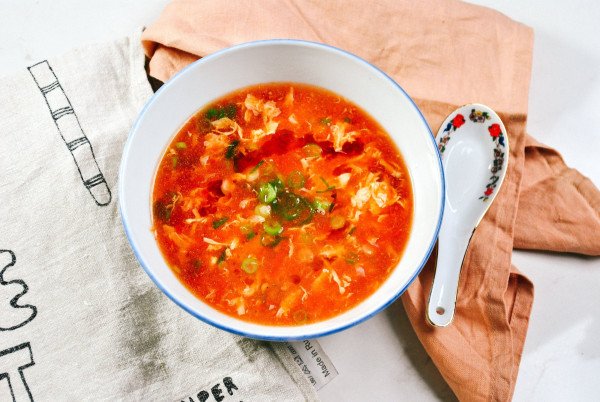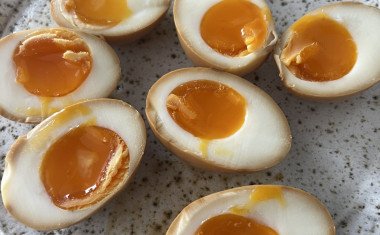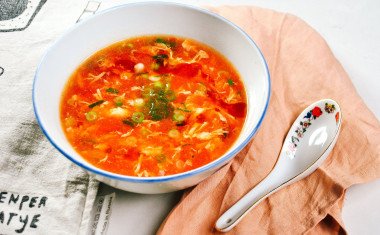
Egg Yolk Nutrition, Recipes, Uses & More
Egg Yolk Nutrition, Recipes, Uses & More
Beneath the hard-shell exterior lies a burning mystery. Many questions, myths, and opinions have gone unanswered until now…
What’s in an egg yolk?
Do egg yolks have protein?
Can you store them in the fridge? And most importantly,
Which is best? Egg whites or egg yolks?
We’ll crack open the shell, debunk all the myths, and tell you the truth about egg yolks. Let’s not waste any time. Dig in!
What is an Egg Yolk?

An egg yolk is the vibrant, golden-yellow centre of an egg, enclosed by the egg white and the shell.
Being the primary food source for developing chicks, egg yolks are nutrient-dense, containing most of the essential fats, vitamins and minerals and a good proportion of the protein found in eggs. Rich and creamy, the yolk adds depth of flavour and a velvety texture to a wide range of culinary delights, playing an essential role in just about every recipe here at Australian Eggs!
Egg Yolk Nutrition
So what does an egg yolk consist of and how does it support your health?
- Vitamin D - 100% of an egg's vitamin D is in the yolk
- What it does: Sometimes called the ‘sunshine vitamin’, vitamin D is a fat-soluble vitamin that is both obtained from food and made by the body when sunlight hits the skin. It’s found naturally in sunshiny egg yolks and can also be found in supplements.
- Quantity per serve: 8.2mcg (82% RDI)
- Vitamin B12 - 100% of an egg’s vitamin B12 is in the yolk
- What it does: Essential in the formation of red blood cells and DNA, repairing body tissue, and maintaining the healthy function of the immune and nervous systems.
- Quantity per serve: 0.3mcg (15%RDI)
- Iron - 91% of an egg’s iron is in the yolk
- What it does: Iron is needed for energy production, immunity, carrying oxygen around the body and for mental health and wellbeing.
- Quantity per serve: 1.7mg (14%RDI)
- Vitamin B5 - 92% of an egg’s vitamin B5 is in the yolk
- What it does: Vitamin B5 is needed for the formation of red blood cells, for helping the body make neurotransmitters and hormones, and for the release of energy from food.
- Quantity per serve: 1.1mg (22%ESADDI)
- Vitamin E - 100% of an egg’s vitamin E is in the yolk
- What it does: Vitamin E has beneficial antioxidant properties that play a pivotal role in maintaining good general health – including protecting cells from the damaging effects of free radicals.
- Quantity per serve: 2.0mg (20%RDI)
- Retinol (Vitamin A) - 100% of an egg’s vitamin A is in the yolk
- What it does: Vital in sustaining healthy skin, supporting immune function, maintaining good vision and promoting general reproductive health.
- Quantity per serve: 102mcg (14%RDI)
Egg yolks exclusively contain vitamins A, D, E, and B12.
Egg yolks also supply protein, biotin, folate, B2, B5, and more. These nutrient quantities are distributed between the white and the yolk. A full list of relevant nutritional information is below.
Australian Eggs Nutrient Analysis 2018
Conducted by the National Measurement Institute (NMI), a division within the Department of Industry, Innovation and Science
| Nutrient | 2018 average qty per 100g |
| Retinol (vitamin A) | 98mcg |
| Riboflavin | 0.4mg |
| Thiamin | 0.05mg |
| Vitamin B6 | 0.02mg |
| Vitamin B12 | 0.33mcg |
| Biotin | 5.2mcg |
| Folate | 88mcg |
| Vitamin D | 7.9mcg |
| Vitamin E | 1.9mg |
| Pantothenic acid | 1.07mg |
| Potassium | 131mg |
| Magnesium | 12mg |
| Phosphorus | 171mg |
| Iron | 1.8mg |
| Selenium | 28mcg |
| Zinc | 1.0mg |
| Iodine | 47mcg |
Egg Whites vs. Egg Yolks
Do egg whites contain more protein than egg yolks? Yes.
Is it significantly more, and enough for you to consider changing your diet? Probably not. In fact, egg yolks contain almost half (41%) of the protein content found in eggs.
Likewise, if you choose to eat whites over yolks (or vice versa) you could be missing out on essential nutrients only found in one part or the other. Two egg yolks, for example, provide 82% of your daily recommended intake of vitamin D, making eggs one of the highest-quality sources of vitamin D available in food.
If your diet consists of only egg whites, you are missing out on vitamin D. Vitamin D deficiency affects anywhere between 20-40% of Australians yearly, increasing during the winter months.
Egg yolks also contain other essential nutrients, such as iron, phosphorus, B12, as well as the antioxidants lutein, and zeaxanthin. While egg whites provide most of the riboflavin and some of the selenium.
When looking at the nutritional value of an egg, it’s important to take a look at everything in the shell instead of individual elements. Every part of the egg contains essential nutrients to support our health and wellbeing.
What to Do With Leftover Egg Yolks?

Making a meringue pie or maybe a few cocktails on the weekend? After the egg whites are used, what can you do with those leftover egg yolks?
Yolks are an essential ingredient in lemon curds, custards, and mayonnaise recipes. They form the base of many other sauces - like hollandaise - and play an important role in ice creams and other desserts.
If you want to keep the yolks for later use, they can be stored in an airtight container in the fridge for up to 2 days.
Frequently Asked Questions
Are egg yolks good for you?
Egg yolks and egg whites contain vitamins and minerals in different proportions. The egg white is a great source of protein, riboflavin, and contains some selenium. Yet most of the egg’s nutrients (such as vitamins A, D, E, B12, the antioxidants lutein and zeaxanthin, and many others) are found in the yolk. Both yolks and whites provide essential nutrients for the body, with yolks supplying almost half of the protein found in eggs. So yes, not only are egg yolks good for you, but every part of the egg is good for you!
How do double-yolk eggs occur?
Double egg yolks occur when a hen releases two yolks into the same eggshell during ovulation. It can happen for various reasons, such as the hen being young or genetically predisposed to lay double-yolked eggs. Hormonal changes or dietary issues can also contribute to this phenomenon. While double yolks are relatively rare, they can be a delightful surprise when cracking open an egg! Keep in mind that they are just as nutritious as single-yolk eggs.
How long do egg yolks last in the fridge?
If properly stored in an airtight container, egg yolks can last for up to 2 days in the fridge.
Want to see what an egg farm looks like? Take this interactive 360 degree tour to see how eggs are produced in Australia.

 >
> 


